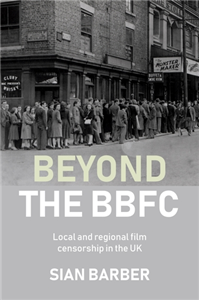Description
More Information
Rights Information
Albania, Algeria, Angola, Argentina, Armenia, Australia, Austria, Bahrain, Belgium, Belize, Benin, Bolivia, Bosnia and Herzegovina, Botswana, Brazil, Bulgaria, Burkina Faso, Burundi, Cameroon, Canada, Cape Verde, Central African Republic, Chad, Chile, China, Colombia, Comoros, Congo [DRC], Congo, Republic of the, Costa Rica, Ivory Coast, Croatia, Czech Republic, Denmark, Djibouti, Ecuador, Egypt, El Salvador, Equatorial Guinea, Eritrea, Estonia, Ethiopia, Faroe Islands, Finland, France, French Guiana, Gabon, Gambia, Georgia, Germany, Ghana, Greece, Guatemala, Guinea, Guinea-Bissau, Guyana, Honduras, Hongkong, Hungary, Iceland, India, Indonesia, Iran, Iraq, Ireland, Israel, Italy, Japan, Jordan, Kazakhstan, Kenya, Kuwait, Latvia, Lebanon, Lesotho, Liberia, Libya, Lithuania, Luxembourg, Macau, China, Macedonia [FYROM], Madagascar, Malawi, Malaysia, Mali, Malta, Mauritania, Mauritius, Mayotte, Mexico, Mongolia, Montenegro, Morocco, Mozambique, Namibia, Netherlands, New Zealand, Nicaragua, Niger, Nigeria, Norway, Oman, Pakistan, Panama, Paraguay, Peru, Philippines, Poland, Portugal, Puerto Rico, Qatar, Reunion, Romania, Russia, Rwanda, Saint Helena, Sao Tome and Principe, Saudi Arabia, Senegal, Serbia, Seychelles, Sierra Leone, Singapore, Slovakia, Slovenia, Somalia, South Africa, South Korea, Spain, Sri Lanka, Sudan, Suriname, Swaziland, Sweden, Switzerland, Syria, Taiwan, Tanzania, Thailand, Timor-Leste, Togo, Tokelau, Tunisia, Turkey, Uganda, Ukraine, United Arab Emirates, United Kingdom, United States, Uruguay, Venezuela, Vietnam, Western Sahara, Yemen, Zambia, Zimbabwe, South Sudan, Cyprus, Palestine, Bangladesh, Cambodia, Liechtenstein, Azerbaijan, Jamaica, Kyrgyzstan, Dominican Republic, Myanmar, Monaco
Endorsements
This important work explores local film censorship activity across Britain and Northern Ireland from earliest days of cinema to the coming of video on the 1980s. Drawing on archival material from different locations, it highlights the systems and mechanisms being deployed to control and regulate film at local level and what was driving and informing this local activity. While attitudes towards contentious films are shaped by period and cultural attitudes, they are also shaped by location and particularly local conceptions of taste, taboo and acceptability. From independently appointed censors, to committees who provided stringent scrutiny of all contentious titles, film censorship differed widely across local areas and regions. Films considered included well-known contentious titles, sex-education films, material intended to be shown on a Sunday, and titles from the horror, crime and adventure genres. Providing examples from Aberdeen, Bexhill, Belfast, Wakefield and Cheltenham as well as across Wiltshire, Gloucestershire, Somerset, Cornwall, Glamorgan and Berkshire, this work highlights the particular local inflections given to the censorship of film and charts how different interventions operated, why they endured or why they came abruptly to an end. It reveals how place specifically informs and shapes film censorship and it situates these findings alongside interventions from the British Board of Film Classification, the Home Office, the Greater London Council, and The Public Morality Council. This detailed, historical exploration offers new insights into British local film censorship and how it contributed to debates about film and cinema taking place across the 20th century.
Reviews
This important work explores local film censorship activity across Britain and Northern Ireland from earliest days of cinema to the coming of video on the 1980s. Drawing on archival material from different locations, it highlights the systems and mechanisms being deployed to control and regulate film at local level and what was driving and informing this local activity. While attitudes towards contentious films are shaped by period and cultural attitudes, they are also shaped by location and particularly local conceptions of taste, taboo and acceptability. From independently appointed censors, to committees who provided stringent scrutiny of all contentious titles, film censorship differed widely across local areas and regions. Films considered included well-known contentious titles, sex-education films, material intended to be shown on a Sunday, and titles from the horror, crime and adventure genres. Providing examples from Aberdeen, Bexhill, Belfast, Wakefield and Cheltenham as well as across Wiltshire, Gloucestershire, Somerset, Cornwall, Glamorgan and Berkshire, this work highlights the particular local inflections given to the censorship of film and charts how different interventions operated, why they endured or why they came abruptly to an end. It reveals how place specifically informs and shapes film censorship and it situates these findings alongside interventions from the British Board of Film Classification, the Home Office, the Greater London Council, and The Public Morality Council. This detailed, historical exploration offers new insights into British local film censorship and how it contributed to debates about film and cinema taking place across the 20th century.
Author Biography
Sian Barber is a Lecturer in Film Studies at Queen's University Belfast
Manchester University Press
Manchester University Press is a leading UK publisher known for excellent research in the humanities and social sciences.
View all titlesBibliographic Information
- Publisher Manchester University Press
- Publication Date April 2025
- Orginal LanguageEnglish
- ISBN/Identifier 9781526163127 / 1526163128
- Publication Country or regionUnited Kingdom
- FormatPrint PDF
- Pages312
- ReadershipGeneral/trade; College/higher education; Professional and scholarly
- Publish StatusPublished
- Dimensions234 X 156 mm
- Biblio NotesDerived from Proprietary 5282
- Reference Code13371
Manchester University Press has chosen to review this offer before it proceeds.
You will receive an email update that will bring you back to complete the process.
You can also check the status in the My Offers area

Please wait while the payment is being prepared.
Do not close this window.



